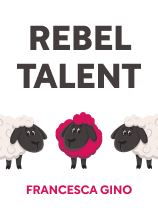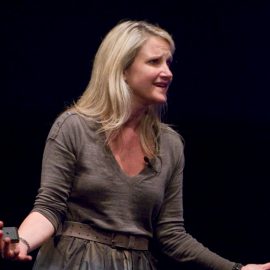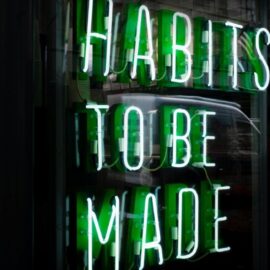

This article is an excerpt from the Shortform book guide to "Rebel Talent" by Francesca Gino. Shortform has the world's best summaries and analyses of books you should be reading.
Like this article? Sign up for a free trial here.
What’s the importance of being yourself? Why are rebels open about who they are?
In Rebel Talent, Francesca Gino says that rebels break the rules by being open about who they are and the challenges they face. Rebels bring their greatest strengths to the table when they are truly being themselves.
Let’s look at the importance of being yourself, according to Gino.
Why Being “Truly You” Is Important
Two reasons show the importance of being yourself. We’ll look at these reasons in detail.
Reason 1: Showing your vulnerability and owning your flaws makes you more relatable to other people and deepens your connections with them.
Gino says that when you’re open and honest about your failures and the challenges you’ve faced, you can inspire and be a role model for others.
For example, gymnast Simone Biles showed her vulnerability when she cited stress, not physical problems, as the reason she was pulling out of two competition events at the 2021 Olympics. Biles’s announcement that she wouldn’t compete, and her honesty about why, were risky, given the pressure on her to bring home gold and the stigma surrounding mental health issues. Her decision to be vulnerable, even in the face of inevitable public scrutiny and attacks on her character, demonstrated her strength and humanity and made her a role model for others.
In contrast, Gino says, when you act in ways that don’t show others what you’re truly feeling and experiencing, when you “fake it” or do things to make other people happy, your health and well-being can suffer.
Reason 2: When you’re truly yourself, you bring your greatest strengths to the table, which can increase your satisfaction and improve your performance at work.
Gino says that when workers can focus on what they’re doing well instead of what they’re not, their attention turns from worrying about their weaknesses to being the best they can be.
- Gallup: Workers report less anxiety and stress, and are six times more likely to experience fulfillment at work, when they engage their strengths on a daily basis.
- The Corporate Research Council found that employees’ performance declined by 27% when managers focused on their weaknesses, but increased by 36% when managers focused on workers’ strengths.
Gino also says that when you can identify and understand your strengths, you gain confidence that helps you achieve your goals.
Why You Shouldn’t Fake Your Emotions
Sociologist Arlie Hochschild calls the phenomenon where workers either suppress negative emotions or put on a “happy face” to perform required duties at a job, “emotional labor,” and says that putting on a facade can lead to feelings of frustration, anger, worthlessness, and emotional exhaustion. According to Hochschild, you can combat emotional exhaustion at work by:
- Determining whether you’re engaging in “surface acting” or “deep acting” (“surface acting” is being polite to a difficult customer to placate them and keep the peace; “deep acting” is making a concerted effort to genuinely understand where that difficult customer is coming from).
- Focusing on engaging in deep acting, which is less associated with burnout.
It’s not entirely clear why deep acting is less associated with burnout than surface acting, but the subject remains ripe for further exploration given the long-term changes to workers’ interactions with the public, including as they relate to emotional labor, as a result of the COVID-19 pandemic.
Strengths-Based Approach: Popular, but Not Proven?
If you want to figure out what your strengths are, you can learn more about your innate action-oriented, cognitive, belief-based, and people-oriented abilities in StrengthsFinder 2.0, Gallup’s companion book to its online strengths test.
In The Effective Executive, Peter F. Drucker builds on Gino’s assertion that employers’ work lives improve when they’re able to focus on their strengths and recognize the importance of being yourself, arguing that organizations also get the best results when they focus on workers’ strengths rather than their weaknesses.
Others recommend a careful approach. The social work profession has long relied on a “strengths-based approach” to help people facing challenges in their daily lives, but a 2021 study argues that policymakers and people in the helping profession have promoted the strategy (which focuses on people’s assets rather than their deficits) too casually and somewhat blindly, and that more research needs to be done to assess its actual effectiveness.

———End of Preview———
Like what you just read? Read the rest of the world's best book summary and analysis of Francesca Gino's "Rebel Talent" at Shortform.
Here's what you'll find in our full Rebel Talent summary:
- Why you should tap into your inner rule breaker
- A guide on how to break the rules constructively
- The three principles for becoming a rebel leader






